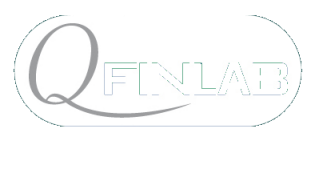L’attività seminariale del gruppo Ingegneria finanziaria si articola su diverse forme di incontro che possono avere obiettivi diversi:
- sviluppare la diffusione della ricerca su tematiche di finanza quantitativa
- diffondere studi/risultati di tipo quantitativo all’interno della comunità finanziaria
- fornire agli studenti occasioni di incontro anche di natura non tecnica su tematiche attinenti il mondo della finanza.
Le attività comprendono seminari scientifici, workshop e incontri su temi specifici, corsi di formazione.
List
I seminari confluiscono nelle liste di seminari dipartimentali.
I seminari su tematiche Fintech confluiscono anche nelle iniziative della Fintech Research Network.
Workshops
-
Oct 16 2025

 ALGODEFI25
ALGODEFI25
Algorithmic Trading, Decentralized Finance and Artificial Intelligence in Capital Markets
The conference is to be held on the October 16-17 2025 at Politecnico di Milano
Venue: Department of Mathematics
Conference Room: Aula Rogers
Second edition
Call for papers: papers or extended abstract
Deadline for submission: September 1st
Notification of acceptance: September 15th
Deadline for registration: October 1st
Keynote speakers:
- Paul Besson (Head of Quant Research, Euronext) TBD
- Thierry Foucault (HEC Paris) AI-Powered traders and liquidity in securities markets
- Martin Herdegen (University of Stuttgart) Optimal Dynamic Fees in Automated Market Makers
- Eyal Neumann (Imperial College) Fredholm Approach to Nonlinear Propagator Models
Scientific committee: Emilio Barucci (chair), Tomaso Aste, Michele Azzone, Leandro Sánchez Betancourt, Andrea Prampolini
Description
The landscape of financial markets is changing significantly thanks to new technologies and methodologies that are profoundly modifying their architecture and functioning. Among the innovations, we have the possibility of operating using real-time market information, machine learning techniques, automatic trading strategies, automatic market making, distributed ledger technologies, digital assets, smart contracts, cryptocurrencies. The objective of the workshop is to offer an opportunity for the academic and industrial communities to meet and discuss research advancements on these topics.
Sponsorship: Banca Intesa Sanpaolo, IASON Ltd
Under the auspices of ASSIOM FOREX, SHIELD Project
-
Oct 01 2025

 QFinLab Seminar – Anna Maria Gambaro (Università del Piemonte Orientale)
QFinLab Seminar – Anna Maria Gambaro (Università del Piemonte Orientale)
Dear colleagues,
you are all invited to participate in the following seminar organized by QFinLab - Department of Mathematics, Politecnico di Milano.
Wednesday, 1 October 2025, 12.15-13.15
Seminar room, third floor, building 14, Via Bonardi 9, Milano (Leonardo Campus)
Anna Maria Gambaro (Università del Piemonte Orientale)
Title: Functional PCA for Risk-Neutral densities in Bayes Hilbert space.
Abstract: In this work, we investigate the main drivers of risk-neutral densities of quoted stocks, using the functional principal component analysis (FPCA). To this end, we first construct a historical series of risk-neutral densities corresponding to quoted option prices with fixed time to maturity, using exponential expansions of orthogonal polynomials. Then, we apply the centered log-ratio transformation (CLRT) to the extracted densities and we perform the FPCA in the Bayes–Hilbert space. The CLRT provides an isometric isomorphism between the Bayes space of square log-integrable densities and the classical Hilbert space of square-integrable functions. As a result, the projected data onto the principal component basis correspond to the CLRT-transformed densities, and the application of the inverse CLRT yields proper density functions. Furthermore, by modeling the historical series of FPCA loadings as a stochastic process, we exploit the FPCA representation for forecasting purposes. Finally, we discuss extensions of this framework to cross-asset analyses and to the modeling of option price surfaces.
This is a joint work with A. Amici e G. Fusai.
Attendance is also possible online (Microsoft Teams), clicking here.
All news can be found on the QFinLab webpage.
The organizers: Michele Azzone and Alessandro Calvia.
-
Jun 09 2025

 QFinLab Seminar – Marco Tolotti (Università Ca’ Foscari Venezia)
QFinLab Seminar – Marco Tolotti (Università Ca’ Foscari Venezia)
Dear colleagues,
you are all invited to participate in the following seminar organized by QFinLab - Department of Mathematics, Politecnico di Milano.
Monday, 9 June 2025, 12.15-13.15
Seminar room, third floor, building 14, Via Bonardi 9, Milano (Leonardo Campus)
Marco Tolotti (Università Ca’ Foscari Venezia)
Title: Market Dynamics, Learning, and the Equity Premium Puzzle in an Agent-Based Model of Information Acquisition.
Abstract: We analyze a financial market with a large number of investors who use an imitation-based learning mechanism to choose among various strategies that differ in the amount and quality of information they incorporate. Agents’ strategies evolve through a straightforward learning mechanism in which traders occasionally imitate more successful strategies adopted by peers they encounter. In this context, equilibrium is defined as a state where investors, on average, win half the time and lose in the remaining periods.
Through an agent-based model, we show that at equilibrium, most investors rely on a limited number of strategies. In most scenarios, two strategies dominate: overly cautious traders, who hold little equity and capture the largest market share, and informed traders, who achieve higher average profits. Our model can help to justify the existence of an equity premium puzzle: in equilibrium, the higher mean profit of informed investors is associated with a median profit that is equal to that of more prudent or misinformed investors.
The organizers: Michele Azzone and Alessandro Calvia.
-
Jun 05 2025

 QFinLab Seminar – Olimpia Carradori (University of Zurich)
QFinLab Seminar – Olimpia Carradori (University of Zurich)
Dear colleagues,
you are all invited to participate in the following seminar organized by QFinLab - Department of Mathematics, Politecnico di Milano.
Thursday, 5 June 2025, 12.15-13.15
Seminar room, third floor, building 14, Via Bonardi 9, Milano (Leonardo Campus)
Olimpia Carradori (University of Zurich)
Title: Insurers' carbon underwriting policies
Abstract: Insurance companies can influence the net-zero transition by limiting coverage for carbon-intensive projects. We study the adoption, structure, and effects of carbon underwriting policies among the world’s largest insurance groups. Using novel mine-level insurance data, we show that insurers with coal policies reduce the number of insured mines by approximately 16%, insured coal volumes by 56%, and make continued coverage significantly less likely. Implementation is often incomplete, and some insurers expand coverage despite commitments. Affected mines tend to reduce output, cut the number of employees, and are more likely to be idled in subsequent periods.
Joint work with Felix von Meyerinck and Zacharias Sautner.
Next seminars: Marco Tolotti (Università Ca' Foscari Venezia), 9 June 12.15.
The organizers: Michele Azzone and Alessandro Calvia.
This initiative is part of the “Ph.D. Lectures” activity of the project "Departments of Excellence 2023-2027" of the Department
of Mathematics of Politecnico di Milano. This activity consists of seminars open to Ph.D. students, followed by meetings with
the speaker to discuss and go into detail on the topics presented at the talk.
-
May 07 2025

 QFinLab Seminar – Alessandro Sbuelz (Università Cattolica del Sacro Cuore)
QFinLab Seminar – Alessandro Sbuelz (Università Cattolica del Sacro Cuore)
Dear colleagues,
you are all invited to participate in the following seminar organized by QFinLab - Department of Mathematics, Politecnico di Milano.
Wednesday, 7 May 2025, 12.15-13.15
Seminar room, third floor, building 14, Via Bonardi 9, Milano (Leonardo Campus)
Alessandro Sbuelz (Università Cattolica del Sacro Cuore)
Title: The Zero-Theta Hedge Contract.
Abstract: We examine long-dated asset valuation under systematic and idiosyncratic risk, driven by extreme trajectories. By introducing the zero-Theta hedge contract, a negative-Delta derivative security with a maturity-independent price, we study investor attitudes toward systematic long-run crashes. Declining expected payoff with maturity signal strong crash aversion. The contract aids in decomposing the stochastic discount factor, shedding light on long-run crash risk premia. Even for volatile assets whose price comes from idiosyncratic rallies, systematic long-run crashes remain central to long-run risk valuation.
Based on a joint work with Anna Battauz and Marzia De Donno.
Next seminars: Olimpia Carradori (University of Zurich), 5 June. Marco Tolotti (Università Ca' Foscari Venezia), 9 June 12.15.
All news can be found on the QFinLab webpage.
The organizers: Michele Azzone and Alessandro Calvia.

